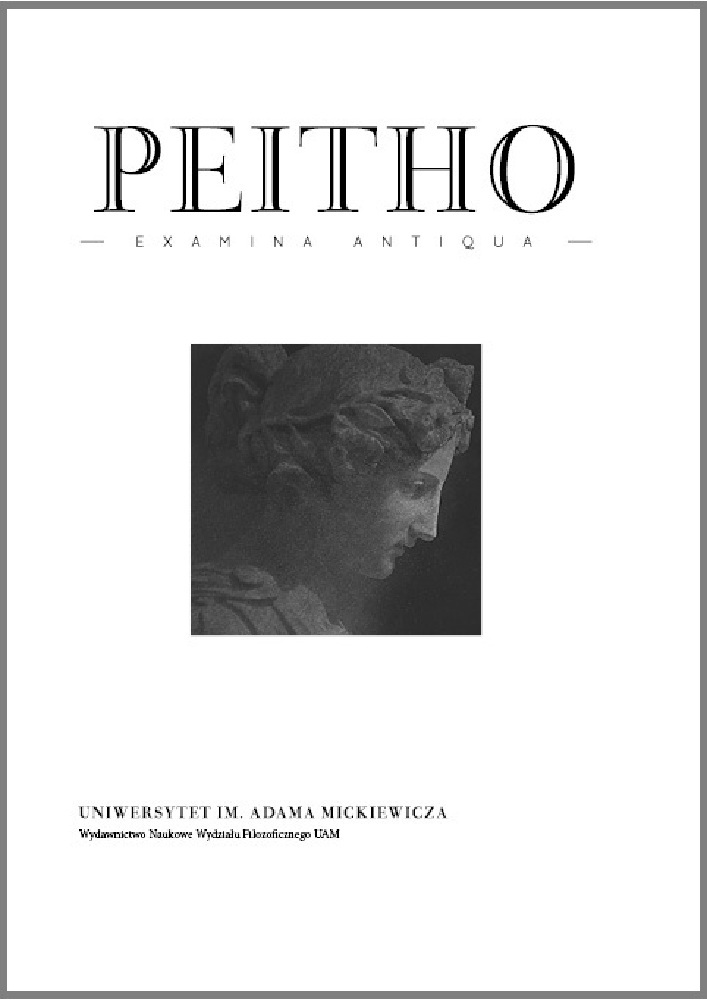Abstract
The subject of life, birth and death constitutes one of the main topics in Democritus’ reflection on human questions. He seeks to understand what men think about the processes of birth and death and how they, accordingly, determine their behavior and attitudes. His reflections comprise a wide range of perspectives and aspects that include examining human behaviour and investigating how it reveals a certain temperament or inclination, inquiring about the nature of these processes and extending the analyses of the processes of birth and death to whole beings through the couple generation-corruption. In the present paper, I intend to examine the main theses and arguments which appear in the testimonies and fragments through which Democritus’ thought was transmitted from antiquity. Furthermore, I will also discuss the hypotheses that for Democritus the most important opposition was not life-death, but rather birth-death and that, at the same time, his idea of nature and life comprises both processes in the perspective of atomistic philosophy. I shall show that corruption has to be considered in two different ways, that is, in the context of physical processes that keep the kosmos in its persistence and in the context of the existence of natural beings, both living and lifeless.
References
Barnes, J., 1995, The Complete Works of Aristotle, 2 vols, Princeton 1984; reprinted with corrections.
Curd, P., 2007, Anaxagoras of Clazomenae. Fragments and Testimonia, Toronto.
Diels, H., Kranz, W. (hrsg.), 1996, Die Fragmente der Vorsokratiker, Bd. 2, Zurich.
Dorandi, T. (ed.), 2013, Diogenes Laertius, Lives of Eminent Philosophers, Cambridge.
Graham, D. (ed.), 2010, The Texts of Early Greek Philosophy. The Complete Fragments and Selected Testimonies of the Major Presocratics, Cambridge.
Leszl, W., 2009, I primi atomisti. Raccolta dei testi che riguardano Leucippo e Democrito. Firenze.
Luria, S. (coll.), 1970, Democritea, Leningrado.
Ferrari, G. A., 1980, “La scrittura fine della realta ”, Siculorum Gymnasium 33, pp. 75–89.
Fritz, K. von, 1966, Philosophie und sprachlicher Ausdruck bei Demokrit, Plato und Aristoteles. Darmstadt [1st edition: New York–Leipzig–Paris–London 1938].
Peixoto, M. C. D., Marques, M. P., Puente, F. R., 2012, O visível e o inteligível. Percepção e intelecção na filosofia grega antiga, Belo Horizonte.
License
Peitho provides immediate open access to its content on the principle that making research freely available to the public supports a greater global exchange of knowledge.
